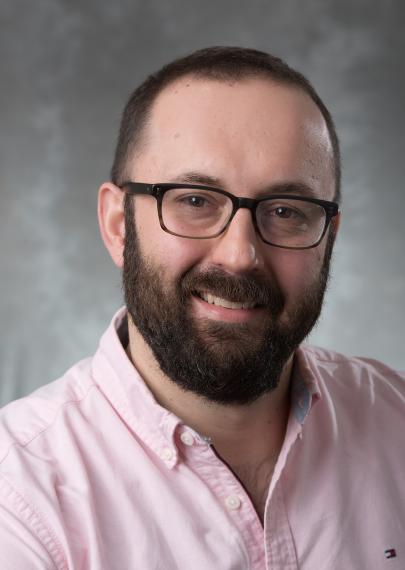Alexander Bardelcik

Instrumentation
in-situ SEM Tensile Stage (MTI SEMTester 1000), High Resolution Digital Optical Microscope (Keyence VHX-5000), Metallography Lab (Struers saws, hot mounting, polishing), Heat Treatment Furnace (Carbolite CWF 11/5), Fully Automated Microhardness Tester (Clemex CMT), DIC Image Processing (Correlated Solutions), High Rate Thermocouple DAQ (Omega OMB-DAQ-2408), Uniaxial Tensile Frame (Instron 50 and 200 KN electromechanical system), FE Modelling Software (LS-Dyna, Altair Hyperworks, SolidWorks), Computing (10 Core Intel Xeon E5 CPU)
Capabilities
- Mechanical Characterization of low to high strength materials (tension, compression, shear)
- Heat treatment of metals
- Advanced base metal and weld microstructure characterization
- Damage evolution characterization
- Meso-scale in-situ FE-SEM tensile and shear testing of multi-phase metals
- Meso-scale strain partitioning measurement with DIC
- Advanced FE modelling (Representative Volume Element, Metal forming, Impact)
- Metal Forming
Education and Employment Background
Dr. Alexander Bardelcik received his PhD from the Department of Mechanical and Mechatronics Engineering (MME) at the University of Waterloo in 2012. Between 2013 and 2016 he worked as a Research Associate and Sessional Lecturer in the MME department at the University of Waterloo. Bardelcik joined the School of Engineering at the University of Guelph in 2016 where he is now an Assistant Professor.
Research Themes
Bardecik’s research is in the field of solid mechanics and material science with a focus on the structure-property relationship of single and multi-phase metals and the development of novel metal forming processes. The nature of this work is experimental and strongly complimented with advanced finite element modelling capabilities. His discovery based research program focuses on characterizing and modelling the meso-scale damage evolution processes which lead to ductile fracture in advanced and novel steel and aluminum alloys. Key research themes include:
- Meso-scale damage evolution. Characterizing and quantifying the in-situ strain partitioning (using DIC) and damage accumulation phenomena during plastic deformation of advanced multi-phase steels and aluminums is a major research thrust for Bardelcik. This work identifies the microstructural characteristics/morphologies which lead to enhanced damage performance.
- Representative Volume Element (RVE) modelling. Experimental techniques have been developed to reproduce high resolution RVE FE models of multi-phase microstructures which incorporate damage phenomena. These models are validated against experiments and can be used to “virtually design” multi-phase microstructures.
- Novel metal forming processes. Bardelcik has been involved in developing novel metal forming processes (press hardening and warm forming), which enable the substitution of lightweight metals (advanced and ultra-high strength steels, aluminum and magnesium alloys) within vehicle crash structures.
- Low to high strain rate material characterization. Bardelcik’s work in this area can be used to develop finite element material models that can be used to simulate automotive crash events. Bardelcik collaborates with industry and government, including automobile manufacturers (Honda, Toyota, General Motors), tier one automotive parts suppliers (Magna, Metalsa), and material producers (Stelco, Arcelor Mittal, US Steel, AK Steel).
- Polymeric additive manufacturing of energy absorbers. 3D printing, impact testing and FE modelling of lightweight octet-truss lattice structures for personal protection equipment (i.e. helmets) is another field of research for Bardelcik. Optimizing energy absorption through material property tuning and octet-truss geometry is the research goal.
Highlights
- Undergraduate Teaching Award, Faculty of Engineering, University of Waterloo, 2016
- Natural Science and Engineering Research Council of Canada (NSERC) Discovery grant, 2017
- Ontario Centre of Excellence (OCE) grant, 2017, 2018, 2019, 2020, 2021
- Honda R&D Americas, 2017
- NSERC CRD grant, 2019, 2020, 2021
- Co-Chair 36th International Deep Drawing Research Group Conference, 2018